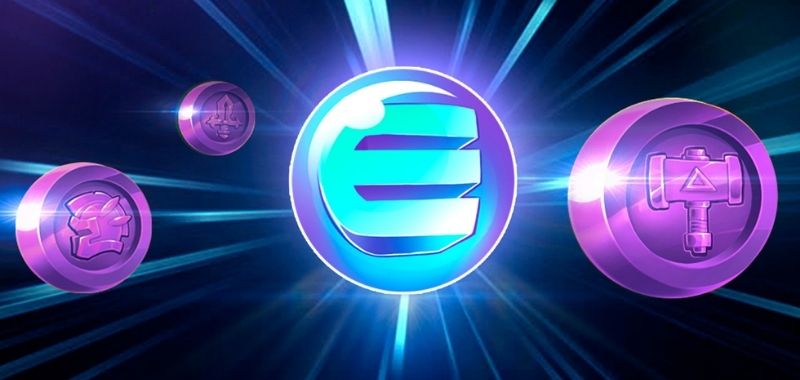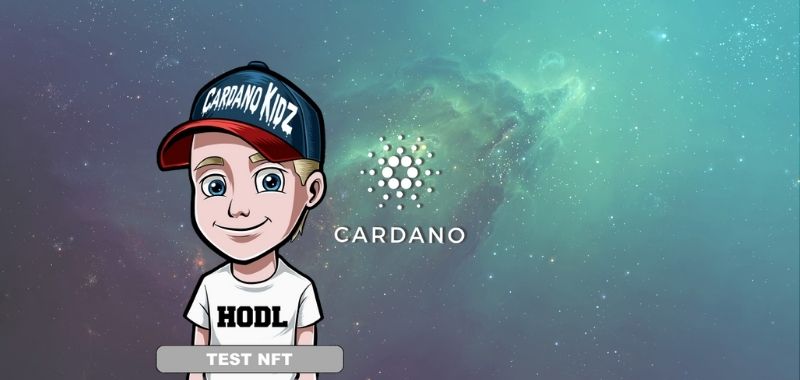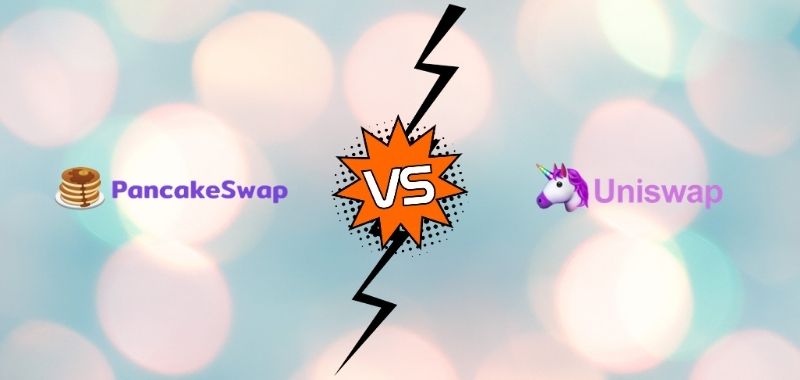Altcoins News
Six Polkadot projects to watch closely in 2021

One of the most discussed and highly anticipated alternatives of Ethereum is Polkadot and the projects built on it. Polkadot is a low latency, high throughput blockchain that uses sharding mechanisms to offer faster and cheaper interactions.
As a smart contract platform, it may seem that Polkadot wants to compete against Ethereum, but rather, it intends to complement it. With over 350 projects and counting using Polkadot as the framework for their dApps, its ecosystem is brimming over with innovative startups and smart solutions. Let’s go over five of the best Polkadot-based applications to watch in 2021.
Kusama among Polkadot projects
The first project whose star is in the ascendency is Kusama, a blockchain protocol developed by the same team behind Polkadot. As Polkadot prepares for its slot auction, giving projects access to parachains on the platform, Kusama is coming in handy as a secondary ‘practice’ network. Powered by the KSM cryptocurrency, Kusama offers the same infrastructure that developers can utilize on Polkadot, allowing for developers to test their projects on a suitable mainnet.
Polkadot currently offers a testnet, called Rococo, but Kusama provides a more practical and live experience. As a live distributed ledger technology environment, Kusama enables teams to experience a Polkadot-style parachain, coming together with governance, staking, and validation testing in a real setting.
Splyt
Since its inception, the e-commerce industry has been under centralized control. Within the existing infrastructure, entities can work with one another, but it is impossible for an outside party to involve themselves in the production or sales process. Splyt is introducing a unique solution that will enable anyone to participate in e-commerce sales through NFT-powered decentralized markets.
Splyt assigns unique ‘eNFTs’ to any e-commerce product, putting the entire lifecycle of items on the blockchain. With this system, anyone can become a sales affiliate and sell the product to an end customer. The buyer will then receive the end product as well as the NFT it’s represented by, allowing proving its provenance and authenticity. This empowers merchants and influencers, allowing both to target a broader audience and maximize profits.
RioChain
Developed by RioDeFi, RioChain is a defi-focused blockchain touting platform-agnostic interoperability, high scalability, fast transactions, and low fees. RioChain acts as a bridge between centralized exchanges, decentralized exchanges, and competing blockchains, allowing users to access the entire defi spectrum across networks. RioChain offers mobile and web wallets that enable users to access any digital asset in the ecosystem and easily interact with any RioChain applications directly within the wallet. RioChain offers its users accessible and transparent saving platforms, stablecoin loan options, and e-commerce choices across centralized and decentralized networks.
Polkastarter
Polkastarter is a fundraising protocol built on Polkadot, allowing its users fair and equal access to new investment opportunities. If a user is a holder of the Polkastarter cryptocurrency, POLS, they can gain access to new blockchain investments before the general public. Considering many up-and-coming projects tend to explode once they hit the open market, Polkastarter allows greater financial community involvement in a project without compromising fairness. Polkastarter benefits development teams and investors, allowing for easy investment access and the creation of a more robust project community.
Bridge Mutual
With the influx of defi applications and users, more hackers than ever are looking for ways to manipulate networks and steal funds. This is where Bridge Mutual comes in, a decentralized risk coverage platform that allows users to take out insurance-like claims against potential hacks and vulnerabilities. Bridge Mutual is able to offer coverage to stablecoins, cryptocurrency exchanges, and smart contracts, with the implementation of risk coverage for inaccurate oracle information likely to come soon. Hundreds of millions of dollars have been stolen from exchanges throughout the years; now, users can protect themselves when trading onchain. Since this is decentralized finance, Bridge Mutual is peer-to-peer, meaning users can earn interest from giving out loans.
A number of interesting characteristics make Bridge Mutual superior to traditional risk coverage platforms. When funds are idly sitting in pools, which they will be until someone claims their coverage, Bridge uses the assets in other defi platforms, such as lending and staking, to generate additional yield for BMI holders, the network’s currency. With Polkadot’s interoperability, Bridge Mutual hopes to expand and offer coverage to many different blockchains and their applications.
Polkaswap
The final project we will cover is Polkaswap, Polkadot’s solution to Uniswap. Polkaswap is a decentralized exchange and automated market maker, allowing anyone to provide platform liquidity and trade without third-party oversight. Uniswap has quickly become the most popular DEX on the market, generating billions of dollars in trading volumes. Still, the trading fees are getting excessively high as the Ethereum blockchain is clogged with transactions. To offer a similar but competing service, Polkaswap accomplishes everything Uniswap can but on a much cheaper and faster blockchain. As a cross-chain DEX, it will also have access to liquidity from projects and platforms outside of the Polkadot ecosystem.
Altcoins News
Shiba Inu: Celebration for the Burning of 176 Million SHIB in a Historic Transaction

In an exciting development for the Shiba Inu community, September 20 marked a significant milestone as Shiba Inu’s official burn tracker announced that over 176 million SHIB tokens had been burned in a single transaction. But that’s not all; in the last 24 hours, a total of 135,933,606 SHIB tokens were burned, adding up to an impressive total of 521,814,163 tokens burned in just 7 days.
Impact on SHIB Price
As expected, this exceptional event has captured the attention of the cryptocurrency community and Shiba Inu investors worldwide. In the latest hourly update provided by Shibburn, the current price of the meme coin stands at $0.0000073, with a slight 0.15% decrease in the last hour. Although there has been a 1.34% decrease in the price in the last 24 hours, Shiba Inu’s market capitalization remains strong, valued at $4,297,527,749.
Lucie: The Voice of the Shiba Inu Community
On September 18, a key member of the Shiba Inu team, known as Lucie, addressed the community to answer burning questions about the highly anticipated SHIB token burn in Shibarium. Lucie emphasized that token burns are scheduled per transaction, meaning they occur based on the level of community participation. In a passionate plea, she urged SHIB holders to support this effort, stressing that SHIB burns are the result of close collaboration between developers and the community.
Lucie also pointed out that while it’s exciting to see enthusiasm for token burns, it’s crucial for the community to understand that SHIB burns are a community-driven initiative and not a call for developers to take immediate action.
Shibarium’s Focus: Strengthening BONE ShibaSwap
Amidst this backdrop of token burns, the Shibarium team has shifted its focus to strengthen the Bone ShibaSwap token, also known as BONE. Lucie emphasized that the implementation of BONE aims primarily to safeguard the interests of investors. To achieve this goal, the team has implemented a temporary locking contract along with a decentralized multi-signature wallet, ensuring maximum protection for Shiba Inu investors.
Shibarium’s Success with NOWNodes
Recently, Shibarium achieved an impressive feat by processing over 7 million RPC requests for the network in just one week. This achievement sets a new record for the platform and underscores the growing importance of Shibarium in the cryptocurrency ecosystem. NOWNodes, a node service provider supporting more than 80 blockchain networks, reported on this noteworthy accomplishment, highlighting Shibarium’s increasing relevance in the world of cryptocurrencies.
The Shiba Inu community is excited about these recent developments and the massive SHIB token burn, further bolstering their confidence in the project. With Shibarium gaining momentum and active community engagement, the future of Shiba Inu appears bright in the world of cryptocurrencies.
Altcoins News
Crypto Enforcement Funds Under Scrutiny: Congressman Emmer Calls For Restrictions On SEC

In a recent statement, Congressman Tom Emmer, a prominent figure in the GOP and a staunch advocate for crypto, expressed his concerns regarding the actions of Securities and Exchange Commission (SEC) Chair Gary Gensler.
Emmer accused Gensler of abusing his authority, leading to the expansion of the Administrative State while “disregarding the interests of the American people”.
To address these concerns, Emmer plans to sponsor an appropriations amendment aimed at restricting the SEC’s use of funds for crypto enforcement until clear rules and regulations are established.
Emmer Advocates For Clear Rules In The Crypto Industry
Emmer’s criticism of Chair Gensler centers on what he perceives as the weaponization of taxpayer dollars. Emmer argues that Gensler has utilized his position to further centralize regulatory control without ensuring a transparent and regulatory-friendly environment for the crypto industry.
By proposing to restrict the SEC’s funds for digital asset enforcement, Emmer seeks to emphasize the need for clear guidelines that protect both investors and innovators in the crypto space.
Addressing Senator Elizabeth Warren’s stance on cryptocurrencies, Emmer refers to her as a “control-freak senator” with an inclination towards centralized control.
He suggests that Warren favors a government-owned banking system and desires to retain the centralized power that comes with central banking. Emmer acknowledges the importance of central banking’s role but emphasizes the need for its evolution to adapt to the 21st century.
Emmer further asserts that attempts to suppress digital assets and cryptocurrencies are futile. He cites China’s unsuccessful ban on mining activities as evidence that even authoritarian regimes struggle to control decentralized technologies.
Emmer believes that a country like the United States, which “cherishes freedom”, cannot impede the progress of digital assets and cryptocurrencies.
The congressman’s remarks shed light on his perspective as an advocate for the crypto industry and his concerns regarding regulatory overreach. Emmer emphasizes the necessity of clear and balanced regulations that foster innovation while protecting investors.
By sponsoring an appropriations amendment, he aims to use the legislative process to ensure that the SEC’s enforcement actions align with well-defined rules and regulations.
As Emmer’s proposed amendment gains attention, it reflects the ongoing debate surrounding crypto regulations in the United States. The crypto industry seeks regulatory clarity to foster growth and innovation, while regulatory bodies like the SEC aim to protect investors and maintain market integrity.
Finding the right balance between oversight and innovation remains a key challenge, and Emmer’s efforts contribute to shaping the future of crypto regulation in the United States.
It remains to be seen how Emmer’s appropriations amendment will progress through the legislative process and how it will be received by his colleagues.
As the nascent industry continues to evolve, the role of Congress and regulatory agencies in establishing a clear and balanced regulatory framework will be crucial for its long-term success and widespread adoption.
Featured image from iStock, chart from TradingView.com
Altcoins News
US Forces Young Hacker To Forfeit $5.2 Million In Bitcoin

Last month, Ahmad Wagaafe Hared, a young hacker based in the United States, was ordered to forfeit approximately $5.2 million worth of Bitcoin (BTC), Stellar (XLM), and a BMW sports car to the government. According to a report, this order was made last week due to Hared’s involvement in a SIM-swapping scheme that targeted crypto executives in North California and the Bay Area.
The Bitcoin SIM-Swapping Hack
The SIM-swapping scheme, orchestrated by Hared–who went by the alias “winblo” — began in 2016 and was stopped by local authorities in 2019.
Hared and his accomplices obtained their victims’ contact information before entering a plea agreement with law enforcement agencies. They would then contact cellphone service providers, manipulating company representatives into believing they were the legitimate owners of the targeted phone numbers.
After that, they swapped cards, illegally taking control of their victims’ phone numbers. With this scheme, the hacker gained unauthorized access to their victims’ email and other crypto accounts before transferring coins.
The success of this scheme is evident in the significant amount of assets ordered for forfeiture. Hared must surrender 119.8 BTC, valued at $5.2 million, and 93,420 XLM, worth $11,770. A 2017 BMW sports car, believed to be proceeds of crime, must also be surrendered to the state.
The young hacker has been under arrest for over three years now. As mentioned, in 2019, Hared entered a plea agreement, though many case documents remain sealed, and the deal has not been disclosed to the public. Hared will be sentenced in January 2024 after pleading guilty to conspiracy to commit wire fraud.
According to details, this case is tied to another SIM-swapping scheme, which saw the indictment of Anthony Francis Faulk, also known as “shade,” who pleaded guilty to conspiracy to commit wire fraud in 2019.
Hackers Have Stolen Over $200 Million In 2023 Alone
In a recent report, blockchain intelligence firm Chainalysis claimed that hackers linked to North Korea have stolen over $200 million worth of cryptocurrencies to finance their nuclear weapons program.
In August, Lazarus Group said to be sponsored by the North Korean regime, was linked to the $34 million CoinsPaid hack. They were also reportedly behind the Stake.com hack, the FBI claims. The hit on the crypto casino saw over $40 million of coins robbed.
As part of their activities, hackers employ several tactics to steal Bitcoin and coins, including SIM-swapping, phishing, supply chain attacks, and infrastructure hacks.
Feature image from Canva, chart from TradingView
-
Opinion2 years ago
XRP: FOX Business Senior Correspondent Says SEC Is Losing Its Lawsuit Against Ripple
-
Tutorials3 years ago
How to Earn, Farm and Stake CAKE on PancakeSwap with Trust Wallet
-
Altcoins News3 years ago
Projects with ongoing migration from Ethereum to Cardano
-
NFT3 years ago
CardanoKidz: The first NFTs arrive at Cardano
-
Tutorials3 years ago
How to set up a Bitcoin node: beginner’s guide
-
NFT3 years ago
SpaceBudz: new astronaut NFTs on Cardano
-
DeFi News3 years ago
Uniswap vs PancakeSwap: Full analysis
-
DeFi News3 years ago
Liqwid Finance the first DeFi project on Cardano: everything you need to know



















